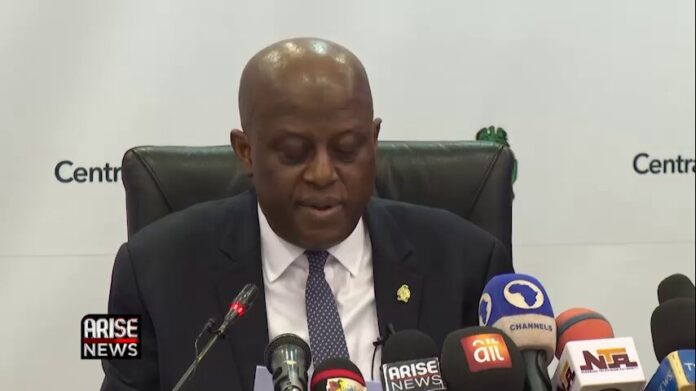Inflation remains “unacceptably high” in Nigeria, but the Central Bank of Nigeria (CBN) insists its monetary policies are gradually stabilizing the economy.
CBN Governor, Olayemi Cardoso, made this assertion on November 30, 2024, while addressing key stakeholders at an event in Lagos.
Cardoso also challenged the current exchange rate of the naira to the dollar, describing it as distorted and misleading.
“Naira Rate Driven by Panic Buyers”
According to Cardoso, the prevailing exchange rate reflects desperation rather than real market conditions.
“The current US dollar exchange rate reflects the price that the most desperate buyers are willing to pay,” he said.
“This, in my view, does not represent the true market value of the naira.”
He blamed misinformation about a supposed gap between dollar demand and supply for creating unnecessary panic in the market.
“It is vital to address the disinformation circulating about a demand-supply gap in the FX market,” Cardoso emphasized.
New FX System to Curb Distortions
To restore stability, the CBN plans to introduce an electronic foreign exchange matching system.
Cardoso explained that this system would enhance transparency and ensure that exchange rates reflect genuine market activities.
“To further enhance the functionality of the foreign exchange market, we’re introducing an electronic FX matching system,” he revealed.
He noted that similar systems have been successful in other markets and expressed confidence in its potential for Nigeria.
Monetary Policy Under Pressure
Despite rising inflation, Cardoso assured Nigerians that the CBN is committed to stabilizing the economy.
He emphasized that the bank’s policies are already showing positive signs.
“We are maintaining a robust cash buffer to meet the country’s needs,” he said, highlighting the bank’s readiness to respond to economic challenges.
Banking Sector Resilience Praised
The Chairman of the Chartered Institute of Bankers of Nigeria (CIBN), Prof. Pius Olanrewaju, also spoke at the event.
Olanrewaju commended the Nigerian economy’s resilience despite macroeconomic pressures.
He highlighted steady economic growth in 2024, with the GDP rising from 2.98% in Q1 to 3.46% in Q3.
“The Nigerian economy continues to be more resilient and agile,” Olanrewaju noted.
He attributed this resilience to efforts by both the CBN and the banking sector.
Bank Recapitalization and Economic Growth
Olanrewaju also praised the recent bank recapitalization exercise.
He believes it will strengthen Nigeria’s financial sector and support the country’s ambitious economic goals.
“We are well on our way toward strengthening the financial sector and supporting a $1 trillion economy by 2030,” he declared.
CBN’s Commitment to Stability
Cardoso’s remarks underscore the CBN’s determination to navigate the current economic challenges.
He acknowledged the difficulties but expressed optimism about the future.
With new policies and reforms, Cardoso is confident that the CBN can achieve its goal of price stability.
“The need for stability is paramount,” he stated, emphasizing that the CBN will continue to innovate and adapt.

